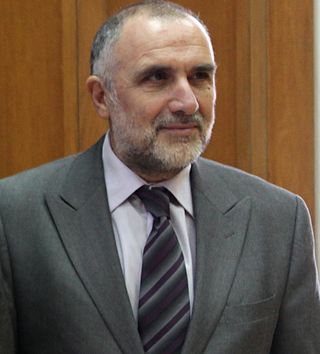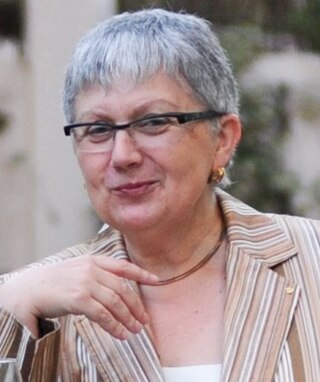This biographical article is written like a résumé .(September 2024) |
Mark Janse (born 31 August 1959 in Sas van Gent, The Netherlands) is BOF-ZAP research professor in Asia Minor and Ancient Greek at Ghent University.
This biographical article is written like a résumé .(September 2024) |
Mark Janse (born 31 August 1959 in Sas van Gent, The Netherlands) is BOF-ZAP research professor in Asia Minor and Ancient Greek at Ghent University.
Janse studied classics, Hebrew and linguistics at Ghent University.
Janse was professor of linguistics and classics and head of the Department of Arts & Humanities at University College Roosevelt, an international honours college of Utrecht University (2004-2008). He is a former visiting fellow of the University of Amsterdam (2002-2004), All Souls College in Oxford (2007 & 2014), the Onassis Foundation in Greece (2008 & 2013) and the Center for Hellenic Studies of Harvard University (2013-2014), a visiting professor at Ghent University (1996-2004), the University of Amsterdam (2003), Ohio State University (2004) and the University of Patras (2006-2009), and an Onassis Senior Visiting Scholar at Harvard University, the University of Arizona, Stanford University and Princeton University (2012). He is a research associate of the ESRC Centre for Research on Bilingualism at Bangor University (since 2008) and CHS Associate in Greek Linguistics of the Center for Hellenic Studies of Harvard University (since 2017).[ citation needed ]
Janse has been editor of Linguistic Bibliography (1982-2004).[ citation needed ]
In June 2005, Mark Janse and Dimitris Papazachariou from the University of Patras discovered native speakers of Cappadocian Greek, a Greek-Turkish mixed language believed to have died out in the 1960s.[ citation needed ]
Gregory Nagy is an American professor of Classics at Harvard University, specializing in Homer and archaic Greek poetry. Nagy is known for extending Milman Parry and Albert Lord's theories about the oral composition-in-performance of the Iliad and Odyssey.
Cappadocian Greek, also known as Cappadocian is a dialect of modern Greek, originally spoken in Cappadocia by the descendants of the Byzantine Greeks of Anatolia. The language originally diverged from Medieval Greek after the late medieval migrations of the Turks from Central Asia into what is now Turkey began cutting the Cappadocians off from the rest of the Greek-speaking Byzantine Empire. As a result of the population exchange between Greece and Turkey in 1923, all remaining speakers were forced to emigrate to Greece where they were resettled in various locations, primarily in Central and Northern Greece. The Cappadocians were encouraged to shift to Standard Modern Greek as part of their integration into Greece, and their language was thought to be extinct since the 1960s. In June 2005, Mark Janse and Dimitris Papazachariou discovered Cappadocians in Central and Northern Greece who could still speak their ancestral language fluently. Many are middle-aged, third-generation speakers who take a very positive attitude towards the language, as opposed to their parents and grandparents. The latter are much less inclined to speak Cappadocian and more often than not switch to Standard Modern Greek.

The Center for Hellenic Studies (CHS) is a research institute for classics located in Washington, D.C. at 3100 Whitehaven Street NW. It is affiliated with Harvard University.
Mark Roderick Vendrell Southern was an Indo-Europeanist and professor of German and linguistics.

John Panaretos is a Greek educator and statistician. He is Professor of Probability and Statistics at the Athens University of Economics and Business. He was Deputy Minister of Education, Lifelong Learning and Religious Affairs. He has also been appointed by the Prime Minister to be in charge of the Open Government project.
Edith Hall, is a British scholar of classics, specialising in ancient Greek literature and cultural history, and professor in the Department of Classics and Ancient History at Durham University. She is a Fellow of the British Academy. From 2006 until 2011 she held a chair at Royal Holloway, University of London, where she founded and directed the Centre for the Reception of Greece and Rome until November 2011. She resigned over a dispute regarding funding for classics after leading a public campaign, which was successful, to prevent cuts to or the closure of the Royal Holloway Classics department. Until 2022, she was a professor at the Department of Classics at King's College London. She also co-founded and is Consultant Director of the Archive of Performances of Greek and Roman Drama at Oxford University, Chair of the Gilbert Murray Trust, and Judge on the Stephen Spender Prize for poetry translation. Her prizewinning doctoral thesis was awarded at Oxford. In 2012 she was awarded a Humboldt Research Prize to study ancient Greek theatre in the Black Sea, and in 2014 she was elected to the Academy of Europe. She lives in Cambridgeshire.
Hellenic studies is an interdisciplinary scholarly field that focuses on the language, literature, history and politics of post-classical Greece. In university, a wide range of courses expose students to viewpoints that help them understand the historical and political experiences of Byzantine, Ottoman and modern Greece; the ways in which Greece has borne its several pasts and translated them into the modern era; and the era's distinguished literary and artistic traditions.
The Faculty of Medieval and Modern Languages is a department of the University of Oxford, England. It is part of the university's Humanities Division.

Bharat Gupt is an Indian classicist, theatre theorist, sitar and surbahar player, musicologist, cultural analyst and newspaper columnist. He is also a retired Professor in English, who taught at the College of Vocational Studies of the University of Delhi. In February 2023, he received the Sangeet Natak Akademi Award by the President of India for his contribution to musicology.

Giorgos Stathakis is a Greek politician and economist. From 27 January to 28 August 2015, he served as the Minister of Economy, Infrastructure, Shipping and Tourism in the cabinet of Alexis Tsipras. He has also been a Member of the Hellenic Parliament for Chania since May 2012.

Athanasia "Sia" Anagnostopoulou is a left-wing Greek politician and academic who was the Alternate Minister of Foreign Affairs in the Second Cabinet of Alexis Tsipras. From 18 July to 28 August 2015, she served as the Alternate Minister for European Affairs in the First Cabinet of Alexis Tsipras.
Emma Dench is an English ancient historian, classicist, and academic administrator. She has been McLean Professor of Ancient and Modern History at Harvard University since 2014, and Dean of its Graduate School of Arts and Sciences since 2018. Her previous positions include Professor of Ancient History at Birkbeck College, University of London and Professor of Classics and of History at Harvard.
Angelos Chaniotis is a Greek historian and Classics scholar, known for original and wide-ranging research in the cultural, religious, legal and economic history of the Hellenistic period and the Byzantine Empire. His research interests also include the history of Crete and Greek epigraphy. Chaniotis is a Professor in the School of Historical Studies at the Institute for Advanced Study in Princeton.
Jenifer Neils is an American classical archaeologist and was from July 2017 to June 2022 director of the American School of Classical Studies at Athens. Formerly she was the Elsie B. Smith Professor in the Liberal Arts in the Department of Classics at Case Western Reserve University.
Eleanor Dickey is an American classicist, linguist, and academic, who specialises in the history of the Latin and Greek languages. Since 2013, she has been Professor of Classics at the University of Reading in England.

Sarah Iles Johnston is an American academic working at Ohio State University, studying and publishing on ancient Greek myths and religion.
Philomen Probert is a British classicist and academic, specialising in linguistics. She is Professor of Classical Philology and Linguistics at the University of Oxford.

The Department of Classics is an academic division in the Faculty of Arts and Humanities at King's College London. It is one of the oldest and most distinguished university departments specialising in the study of classical antiquity in the United Kingdom.

Emily Greenwood is Professor of the Classics and of Comparative Literature at Harvard University. She was formerly professor of Classics and the University Center for Human Values at Princeton University and John M. Musser Professor of Classics and Chair of the Department of Classics at Yale University. Her research focuses on Ancient Greek historiography, particularly Thucydides and Herodotus, the development of History as a genre and a modern critical discipline, and local and transnational black traditions of interpreting Greek and Roman classics. Her work explores the appropriation and reinvention of Greco-Roman classical antiquity from the late nineteenth century to the present.

Margalit Finkelberg is an Israeli historian and linguist. She is the professor emerita of Classics at Tel Aviv University. She became a member of the Israel Academy of Sciences and Humanities in 2005 and served as president of the Israel Society for the Promotion of Classical Studies from 2011 to 2016. In 2021, she was elected vice president of the Israel Academy of Sciences and Humanities.